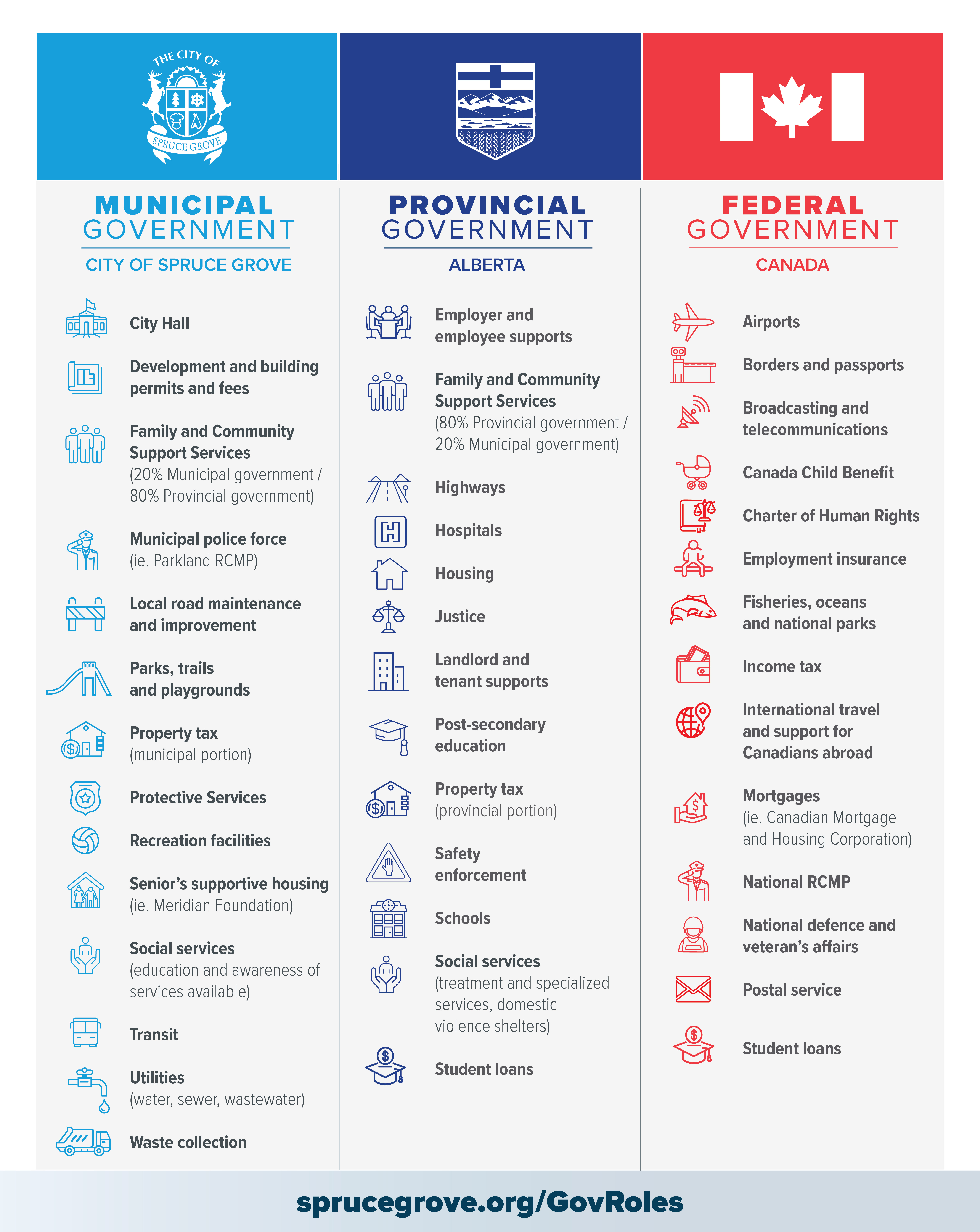Government Roles and Responsibilities
There are three distinct levels of government in Canada: municipal, provincial (or territorial), and federal.
Municipal government
Municipal governments, like the City of Spruce Grove, establish rules and bylaws, and deliver services that support the municipality. Most often, municipal governments are cities or towns, but they can also be counties, villages, summer villages, municipal districts and improvement districts. Municipal governments provide services for the residents of their specific community, like fire protection, public transportation, snow removal, waste management, and maintenance of parks and green spaces.
Provincial government
Provincial or territorial governments, like the Government of Alberta, have the authority to make decisions which affect the entire province or territory, but not the rest of Canada. This includes things like affordable housing and homeless supports, education, health care and hospitals, provincial taxes, and the age of majority.
Federal government
The Federal Government, also known as the Government of Canada, oversees things that affect the entire country, such as the postal service, national defense, the Supreme Court, passports, federal income tax, and employment insurance.
So, who does what?
For some programs or services, it’s easy to tell which level of government is responsible for providing that program or service. For example, most things related to National Defense, the Canadian Armed Forces and Veterans Affairs are delivered by the federal government (Government of Canada). But for other programs and services, it’s a little more challenging to make the distinction. There are also some programs and services that are jointly delivered by two or more levels of government. Refer to the chart to see some common programs and services, and which level(s) of government is/are responsible for providing them.
How are programs and services funded?
Municipal governments rely on a few primary streams of funding to deliver programs and services to residents:
- Municipal property taxes
- Provincial and federal government funding
- Developer levies
- User fees
Some programs and services, such as support for the unsheltered, addictions and mental health, have a degree of shared responsibility between the provincial and federal governments, which can make it challenging to know which level of government should take the lead on a specific topic or area. Additionally, when federal or provincial funding is not adequate or cut in a specific area, the impacts are generally felt most acutely at the municipal level forcing municipalities to provide these services.
As an organization, the City does advocate on behalf of its residents to other levels of government to ensure there is appropriate funding and supports in place. Residents can also reach out to their federal MP (Member of Parliament) or provincial MLA (Member of the Legislative Assembly) if they have concerns about funding that impacts municipal programs and services.
